Fingerprint! Things That Go
R200With simple step-by-step instructions and an inkpad with six bright paint colors, discover how to create lots of busy things that go pictures by using fingerprints.
Showing 193–208 of 1858 results

With simple step-by-step instructions and an inkpad with six bright paint colors, discover how to create lots of busy things that go pictures by using fingerprints.
 Out of stock
Out of stockWith simple step-by-step instructions and an inkpad with six bright paint colours, discover how to create lots of under-the-sea pictures by using fingerprints.
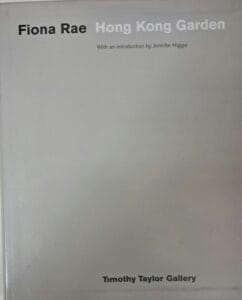
This catalogue was published on the occasion of the exhibition at Timothy Taylor Gallery in 2003.

Sasol First Field Guide to Mushrooms of Southern Africa has been redesigned and fully revised to include new photographs and the most recent taxonomic changes.
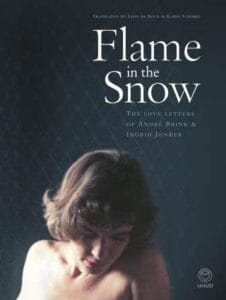
In a telegram dated 29 April 1963, thirty-year-old Afrikaans poet Ingrid Jonker thanks André Brink, a young novelist of twenty-eight, for flowers and a letter he sent her. In the more than two hundred letters that followed this telegram, one of South African literature’s most famous love affairs unfolds. Jonker’s final letter to Brink is dated 18 April 1965. She drowned herself in the ocean at Three Anchor Bay three months later.
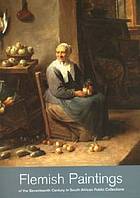
This is a catalogue of Flemish paintings housed in South African public collections. It offers a unique and interesting account of the many important paintings overlooked in international scholarship through lack of exposure
Prof Bernadette Van Haute is Professor in Art History at the University of South Africa in the Department of Art and Music.
She studied Ethnic Art in Belgium and wrote her Master’s dissertation on selected art of Central Africa. After moving to South Africa in 1983, she redirected her research interest to Flemish Art of the 17th century. Her Doctoral thesis focused on a monograph and catalogue raisonné of the Flemish artist David III Ryckaert (2000, Turnhout: Brepols).
Because of the early Dutch presence in South Africa, she researched 17th century Flemish paintings in public collections in South Africa. This study project culminated in the richly illustrated book of Flemish Paintings (2006, Pretoria: Unisa Press).
Prof Van Haute joined Unisa in 1983 in the then Department of History of Art and Fine Arts. She was Chief Editor of the accredited journal de arte from 1996 to 2017.
 Out of stock
Out of stockThis book takes the reader on a thematic journey through the rooms of a former house in Cape Town that Association for Visual Arts (AVA) has, since 1971, called home.
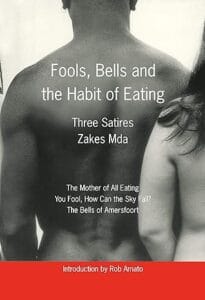
Cupidity, corruption and conciliation are the themes of the three plays in this collection from one of South Africa’s leading writes. The Mother of all Eating, a one-hander, with its central character a corrupt Lesotho official, is a grinding satire on materialism in which the protagonist gets his come-uppance.You Fool, How Can the Sky Fall? is an unbridled study in grotesquerie, reflecting a belief, traceable throughout Mda’s work, that government by those who inherit a revolution is almost inevitably, in the first decade or two, hijacked by the smart operators.

While the other field mice work to gather grain and nuts for winter, Frederick sits on a sunny rock by himself. “I gather sun rays for the cold dark winter days,” he tells them. Another day he gathers “colors,” and then “words.” And when the food runs out, it is Frederick, the dreamer and poet,…
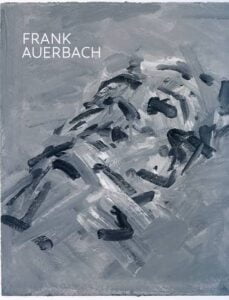

Forty of the renowned architect’s most remarkable works are presented by architect and critic Jean-Louis Cohen, alongside views of the interiors and exteriors of each building. This tour includes many of Gehry’s works throughout the United States and abroad, such as the Walt Disney Concert Hall, the one-of-a-kind “Binoculars Building” in Los Angeles, and the beloved “Dancing House” in Prague.

International best-selling children?s classic reprinted after 49 years. Winter is coming, and all the mice are gathering food … except for Frederick. The mice are not happy with Frederick who seems to daydream and doesn?t help them enough. But as it becomes cold, and food gets scarce, the mice gather together around Frederick, whose stories warm their hearts and spirits.

Winter is coming, and all the mice are gathering food … except for Frederick. The mice are not happy with Frederick who seems to daydream and doesn’t help them enough. But as it becomes cold, and food gets scarce, the mice gather together around Frederick, whose stories warm their hearts and spirits.

Winter is coming, and all the mice are gathering food … except for Frederick. The mice are not happy with Frederick who seems to daydream and doesn’t help them enough. But as it becomes cold, and food gets scarce, the mice gather together around Frederick, whose stories warm their hearts and spirits.
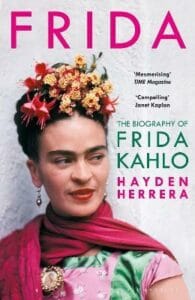
Frida is the story of one of the twentieth century’s most extraordinary women, the painter Frida Kahlo. Born near Mexico City, she grew up during the turbulent days of the Mexican Revolution and, at eighteen, was the victim of an accident that left her crippled and unable to bear children. To salvage what she could from her unhappy situation, Kahlo had to learn to keep still – so she began to paint.

Among the few women artists who have transcended art history, none had a meteoric rise quite like Mexican painter Frida Kahlo (1907–1954). Her unmistakable face, depicted in over fifty extraordinary self-portraits, has been admired by generations; along with hundreds of photographs taken by notable artists such as Manuel and Lola Álvarez Bravo, Nickolas Muray, and Martin Munkácsi, they made Frida Kahlo an iconic image of 20th century art.
No products in the basket.